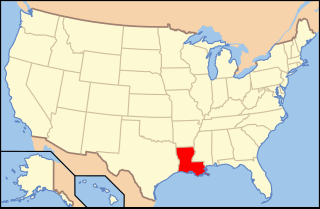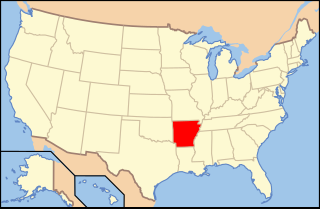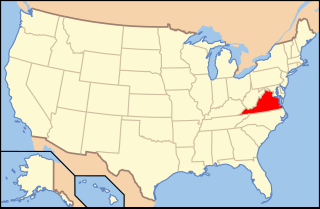Lawrence v. Texas, 539 U.S. 558 (2003), is a landmark decision of the U.S. Supreme Court in which the Court ruled that most sanctions of criminal punishment for consensual, adult non-procreative sexual activity are unconstitutional. The Court reaffirmed the concept of a "right to privacy" that earlier cases had found the U.S. Constitution provides, even though it is not explicitly enumerated. It based its ruling on the notions of personal autonomy to define one's own relationships and of American traditions of non-interference with private sexual decisions between consenting adults.

The availability of legally recognized same-sex marriage in the United States expanded from one state (Massachusetts) in 2004 to all fifty states in 2015 through various court rulings, state legislation, and direct popular votes. States each have separate marriage laws, which must adhere to rulings by the Supreme Court of the United States that recognize marriage as a fundamental right guaranteed by both the Due Process Clause and the Equal Protection Clause of the Fourteenth Amendment to the United States Constitution, as first established in the 1967 landmark civil rights case of Loving v. Virginia.
Many laws in the history of the United States have addressed marriage and the rights of married people. Common themes addressed by these laws include polygamy, interracial marriage, divorce, and same-sex marriage.

Ballot Measure 2 of 1998 is a ballot measure, since ruled unconstitutional, that added an amendment to the Alaska Constitution that prohibited the recognition of same-sex marriage in Alaska. The Ballot measure was sparked by the lawsuit filed by Jay Brause and Gene Dugan, after the two men were denied a marriage license by the Alaska Bureau of Vital Statistics. In Brause v. Bureau of Vital Statistics, 1998 WL 88743, the Alaska Superior Court ruled that the state needed compelling reason to deny marriage licenses to same-sex couples and ordered a trial on the question. In response, the Alaska Legislature immediately proposed and passed Resolution 42, which became what is now known as Ballot Measure 2. Ballot Measure 2 passed via public referendum on November 3, 1998, with 68% of voters supporting and 32% opposing. The Bause case was dismissed following the passage of the ballot measure.
This is a list of notable events in the history of LGBT rights that took place in the year 2008.

Arkansas Proposed Initiative Act No. 1 (2008) is an initiated state statute that was approved on November 4, 2008, election in Arkansas. This measure makes it illegal for any individuals cohabiting outside of a valid marriage to adopt or provide foster care to minors. While the measure was proposed primarily to prohibit same-sex couples from being adoptive or foster parents, this measure also applies to all otherwise qualified couples who are not legally married.

Lesbian, gay, bisexual, and transgender (LGBT) persons in the U.S. state of Louisiana may face some legal challenges not experienced by non-LGBT residents. Same-sex sexual activity is legal in Louisiana, and same-sex marriage has been recognized in the state since June 2015 as a result of the Supreme Court's decision in Obergefell v. Hodges.
This is a list of notable events in the history of LGBT rights that took place in the year 2010.

Lesbian, gay, bisexual, and transgender (LGBT) persons in the U.S. state of Arkansas may face some legal challenges not experienced by non-LGBT residents. Same-sex sexual activity is legal in Arkansas. Same-sex marriage became briefly legal through a court ruling on May 9, 2014, subject to court stays and appeals. In June 2015, the U.S. Supreme Court ruled in Obergefell v. Hodges that laws banning same-sex marriage are unconstitutional, legalizing same-sex marriage in the United States nationwide including in Arkansas. Nonetheless, discrimination on the basis of sexual orientation and gender identity was not banned in Arkansas until the Supreme Court banned it nationwide in Bostock v. Clayton County in 2020.

Lesbian, gay, bisexual, and transgender (LGBT) people in the Commonwealth of Virginia enjoy the same rights as non-LGBT persons. LGBT rights in the state are a recent occurrence with most improvements in LGBT rights occurring in the 2000s and 2010s. Same-sex marriage has been legal in Virginia since October 6, 2014, when the U.S. Supreme Court refused to consider an appeal in the case of Bostic v. Rainey. Effective July 1, 2020, there is a state-wide law protecting LGBT persons from discrimination in employment, housing, public accommodations, and credit. The state's hate crime laws also now explicitly include both sexual orientation and gender identity.

Lesbian, gay, bisexual, and transgender (LGBT) persons in the U.S. state of Nebraska may face some legal challenges not experienced by non-LGBT residents. Same-sex sexual activity is legal in Nebraska, and same-sex marriage has been recognized since June 2015 as a result of Obergefell v. Hodges. The state prohibits discrimination on account of sexual orientation and gender identity in employment and housing following the U.S. Supreme Court's ruling in Bostock v. Clayton County and a subsequent decision of the Nebraska Equal Opportunity Commission. In addition, the state's largest city, Omaha, has enacted protections in public accommodations.

Lesbian, gay, bisexual, and transgender (LGBT) persons in the U.S. state of Mississippi face legal challenges and discrimination not experienced by non-LGBT residents. LGBT rights in Mississippi are limited in comparison to other states. Same-sex sexual activity is legal in the state and same-sex marriage has been recognized since June 2015 in accordance with the Supreme Court's decision in Obergefell v. Hodges. State statutes do not address discrimination on the basis of sexual orientation and gender identity; however, the U.S. Supreme Court's ruling in Bostock v. Clayton County established that employment discrimination against LGBT people is illegal under federal law. The state capital Jackson and a number of other cities provide protections in housing and public accommodations as well.
Until 2017, laws related to LGBTQ+ couples adopting children varied by state. Some states granted full adoption rights to same-sex couples, while others banned same-sex adoption or only allowed one partner in a same-sex relationship to adopt the biological child of the other. Despite these rulings, same-sex couples and members of the LGBTQ+ community still face discrimination when attempting to foster children.
This is a list of notable events in the history of LGBT rights that took place in the year 2014.
Same-sex marriage has been legal in Arkansas since the U.S. Supreme Court's landmark decision in Obergefell v. Hodges on June 26, 2015, in which the court struck down same-sex marriage bans nationwide. Prior to this, same-sex marriage in Arkansas was briefly legal for a period beginning on May 9, 2014, as a result of a ruling by Sixth Judicial Circuit Judge Chris Piazza striking down the state's constitutional and statutory bans on same-sex marriage as violating the U.S. Constitution. Approximately 541 same-sex couples received marriage licenses in several counties before the Arkansas Supreme Court stayed his ruling pending appeal on May 16, 2014.

Wright v. Arkansas is a same-sex marriage case pending before the Arkansas Supreme Court. An Arkansas Circuit Court judge ruled the Arkansas Constitution's ban on same-sex marriage unconstitutional on May 9, 2014. He clarified his opinion to include state statutes that interfered with allowing or recognizing same-sex marriage as well. The state Supreme Court issued a stay in the case on May 16, 2014, but approximately 450 same-sex marriage licenses were issued before the stay went into effect.
Christopher C. Piazza is a Division 2 judge of the Arkansas Sixth Circuit.
Obergefell v. Hodges, 576 U.S. 644 (2015), is a landmark decision of the Supreme Court of the United States which ruled that the fundamental right to marry is guaranteed to same-sex couples by both the Due Process Clause and the Equal Protection Clause of the Fourteenth Amendment of the Constitution. The 5–4 ruling requires all fifty states, the District of Columbia, and the Insular Areas to perform and recognize the marriages of same-sex couples on the same terms and conditions as the marriages of opposite-sex couples, with all the accompanying rights and responsibilities. Prior to Obergefell, same-sex marriage had already been established by statute, court ruling, or voter initiative in thirty-six states, the District of Columbia, and Guam.
This is a list of notable events in the history of LGBT rights that took place in the year 2015.








